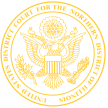I. JOB READINESS CRITERIA
-
Are you motivated to work?
-
Have you been looking for a job on your own without someone pushing you to do it?
-
Do you show up to appointments or meetings on time?
-
Can people depend on you?
-
Do you have a phone number with voice mail or email to give out to employers?
-
Are you drug free?
-
Are you reliable?
-
Do you have a resume?
| Resume Guide | Cover Letter Guide|
II. HOW TO PREPARE THE DAY BEFORE AN INTERVIEW?
-
Research the company: go on the internet and search their website for pertinent information, and ask current employees questions.
-
Map out directions: know the direct route to and from the interview site; conduct a dry run a few days before; plan for traffic/weather/or other obstacles that may arise; and have a Plan B in place.
-
Obtain proper dress attire: Your clothing should be clean and ironed. DO NOT WEAR anything flashy/distracting- no bright colors and no hats. REMOVE all body piercings. COVER cleavage, midrifts, and tattoos.
-
Review your resume, make copies, write out your references’ contact information, find a working pen, and locate paper for taking notes.
-
Make sure your email address, mailing address, and phone numbers are current. Change your outgoing voicemail to a normal, standard message. Do not have ringbacks or slang statements recorded for a potential employer to hear.
-
Practice your responses to typical interview questions with someone else or in front of a mirror.
-
Get a good night's sleep.
III. WHAT TO DO THE DAY OF THE INTERVIEW?
- Wake up early.
-
Eat breakfast.
-
Shower/Bathe: practice good personal hygiene, comb your hair, brush your teeth, wear deodorant, go easy on the perfume/cologne, and look your best.
-
Dress professionally. You only get one chance to make a good first impression.
-
Remember to take copies of your resume, references, pen and paper with you to the interview.
-
Get there 15 minutes early. DO NOT BE LATE!
IV. THE INTERVIEW
-
Turn your cell phone off before you walk into the interview. Remove bluetooth and do not have an Ipod/MP3 player with you.
-
Firmly shake the interviewer’s hand; however, do not try to break it.
-
Smile, be positive, and upbeat. Introduce yourself, look into the interviewer’s eyes and learn his/her name.
-
Remember body language is important: S.O.L.E.R. - Square your body toward the interviewer, Open your arms (do not cross your arms, it appears defensive, do not hunch over in your chair), Lean in slightly, and maintain Eye contact (do not stare down the interviewer), and Relax.
-
Remember the setting that you are in is a professional/business setting. So, watch your language, speak audibly and loud enough for the interviewer to hear you. Respond with “yes or no”, not yeah or nodding of your head. Refrain from using street language and/or profanity.
-
Be confident and do not hesitate with your answer(s) to the felony question or any other question. Remember to outline why an employer should hire you, turn your weaknesses into strengths. Sell yourself. This is the only opportunity you may have.
-
Keep your hands still, no nervous twitching, and don’t swivel in your chair.
V. CLOSING THE INTERVIEW
-
REMEMBER to ask the interviewer questions. Do you offer benefits? When will you be making a decision? How will I be notified?
-
As you exit: make eye contact, firmly shake the interviewer’s hand, THANK him/her for the opportunity to interview with their company. Use his/her name. If there are multiple people in the interview use all names, or none.
-
Thank you letter/email (remember you want to stick out in a positive way from the other candidates).
- Information is provided by Bobbie Pruitt, Jim Hayes, and updated by Brent In.
